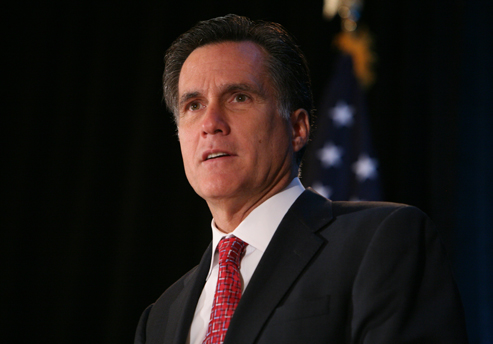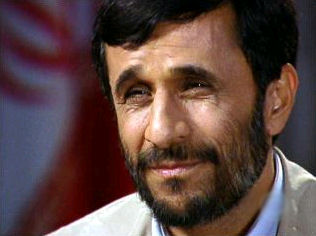 Many organizations have polled the question, “Would you vote for a Mormon candidate?” Well, I propose they try a new poll question, particularly among Mormons… “Would you vote for a candidate solely because he was a Mormon?”
Many organizations have polled the question, “Would you vote for a Mormon candidate?” Well, I propose they try a new poll question, particularly among Mormons… “Would you vote for a candidate solely because he was a Mormon?”
When I talk to other Mormons about Mitt Romney’s candidacy, they typically don’t know too much about him. That is understandable because it is still early in the presidential race, and up until now he has been living and working in Massachussetts (which might as well be Timbuktu to some Mormons…). When I ask them who they are leaning toward, they usually say something like, “Well… I’d vote for Mitt just to get a Mormon in the White House.”
It’s basically the same logic that kept Sanjaya in American Idol for so long. People vote for the least likely candidate just to see how far he will go. (Well, the analogy breaks down when you realize that Sanjaya had no business in AI, whereas Mitt has qualifications to be President)
However… this is a dangerous position. You should get to know Mitt politically. Decide if he is the leader you want leading the country. I would be very curious to see how many Mormons would vote for their religion even if the candidate were Hillary herself.
While I’m on the topic of Mormonism, did you see “House MD” last night? I thought it was absolutely hilarious. One of the “applicants” for the new positions on House’s team is a black Mormon which House identified by a class ring from Brigham Young. This was funny to me because:
- BYU has no medical school… (and it is a well known fact that no doctors worth a hill of beans would get their undergrad at BYU… hehehe…)
- Class rings are not popular at BYU. I personally don’t’ know anyone who has one.
The character asserts early that Mormons now have a “very progressive” view on african-americans, then agrees to get slammed on Vodka as the “control group” for House’s latest medical test, after putting up a good fight contrary. (C’mon… wwjd if having a few shots cured a woman) I am really curious to see if this character will get anywhere in the series, and if House will continue to bash on his religious views. Who knows, maybe Mormonism will be the cure for House’s atheism! Um.. Not.
 According to President Ahmedinejad, there are no homosexuals in Iran. In his words, “this phenomenon does not exist.”
According to President Ahmedinejad, there are no homosexuals in Iran. In his words, “this phenomenon does not exist.”
 So yesterday it was with much glee, happiness, and outright obsessiveness that I welcomed the new line of iPods. Today though, the story is just a little different. It is with much apathy and ambivalence that I welcome Fred Thompson to the 2008 Presidential Race.
So yesterday it was with much glee, happiness, and outright obsessiveness that I welcomed the new line of iPods. Today though, the story is just a little different. It is with much apathy and ambivalence that I welcome Fred Thompson to the 2008 Presidential Race.